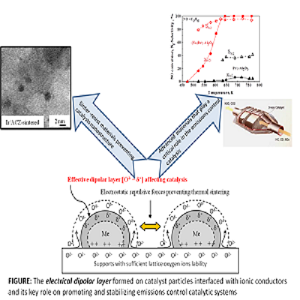
Ioannis V Yentekakis
Technical University of Crete, Greece
Title: Ionically conducting materials as effective catalyst supports with potential implementations in emissions control catalysis
Biography
Biography: Ioannis V Yentekakis
Abstract
Statement of the Problem: Nowadays, the abatement of CO, HCs, NOx and N2O emissions from automotive or stationary sources constitutes a subject of major environmental importance because of the major contribution of these pollutants to serious environmental problems, such as photochemical smog, acid rain, greenhouse effect and climate change as well as stratospheric ozone depletion (N2O). Heterogeneous catalysis plays a key role in pollutant abatement technologies and often provides the most attractive and efficient solutions as, for example, in automotive emissions control – the most significant source of atmospheric pollution over the word. However, atmospheric pollution remains a huge and growing problem; therefore, an imperative need of even more efficient and economic catalytic abatement technologies remains as a highly desirable goal. An advanced catalyst promotion method that provides catalytic systems with exceptional activity and stability has currently attracted extensive attention for a wide range of applications related to energy production and environmental protection, is the subject herein.
Methodology & Theoretical Orientation: Ionically conducting materials as catalyst supports can be used as tunable metal-support interaction carriers, effectively controlling catalytic properties, via an effective dipolar layer of ionic promoter species formed at the catalyst particle surfaces, with concomitant dramatic effects on catalytic performance. The dipolar layer and its intensity (promoter species population), can be electrochemically controlled (Electrochemical Promotion or NEMCA effect) or can spontaneously be created on traditional-type highly dispersed catalysts, via thermally-driven spillover of ionic species from the support on the nanoparticle surfaces.
Conclusion & Significance: Worth noting achievements on environmentally important catalytic reactions (CO, HCs, NOx, N2O abatement) have been accomplished by this concept of promotion. An additional implementation of the concept, which concerns catalyst nanoparticles stabilization against thermal sintering, a subject of great importance in industrial heterogeneous catalytic processes, has recently been discovered.


